Filter by
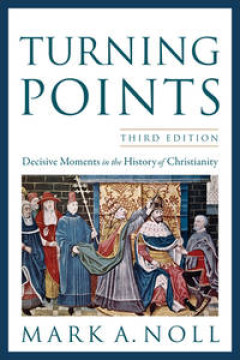
Turning Points: Decisive Moments in the History of Christianity
This bestselling textbook (over 125,000 copies sold) isolates key events that provide a framework for understanding the history of Christianity. The book presents Christianity as a worldwide phenomenon rather than just a Western experience. This popular textbook is organized around 14 key moments in church history, providing contemporary Christians with a fuller understanding of God as he ha…
- Edition
- 3
- ISBN/ISSN
- 9780801039966
- Collation
- Softcover; 368 hlm.; 15.24 x 22.86 cm
- Series Title
- -
- Call Number
- 270.00
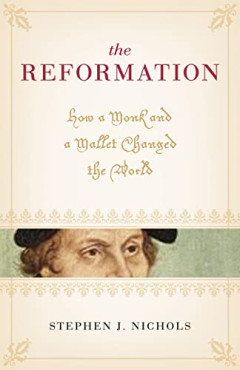
The Reformation: How a Monk and a Mallet Changed the World
Mention history and some might struggle to stifle a yawn. But when presented as a narrative it can often be compelling reading. Stephen J. Nichols takes a key period in time, the Reformation, and presents its major players in a fresh way. From Martin Luther, a simple monk who wielded the mallet, to kings and queens, this book goes behind the scenes to uncover the human side of these larger-than…
- Edition
- -
- ISBN/ISSN
- 9781581348293
- Collation
- Softcover; 159 hlm.; 14 x 21.5 cm
- Series Title
- -
- Call Number
- 270.6
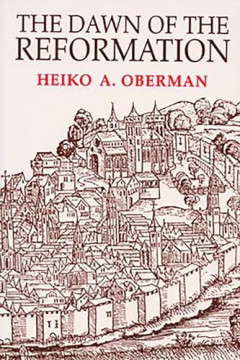
The Dawn of the Reformation: Essays in Late Medieval and Early Reformation Th…
Throughout these essays there runs a common theme: the need to place the Reformation movement in its medieval context, and to bridge the ideological gaps between late medieval Renaissance, and Reformation studies. The opening chapters consider late medieval thought and the emergence of the young Luther at the center of the Reformation movement. There follows a study of the impact upon Luther of…
- Edition
- 1
- ISBN/ISSN
- 0576292045
- Collation
- Softcover; 309 hlm.; 15 x 23 cm
- Series Title
- -
- Call Number
- 270.6
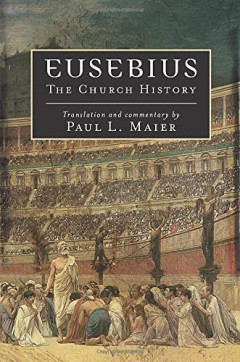
Eusebius: The Church History
Often called the "Father of Church History," Eusebius was the first to trace the rise of Christianity during its crucial first three centuries from Christ to Constantine. Our principal resource for earliest Christianity, The Church History presents a panorama of apostles, church fathers, emperors, bishops, heroes, heretics, confessors, and martyrs. This paperback edition includes Paul L. Maier'…
- Edition
- -
- ISBN/ISSN
- 9780825433078
- Collation
- Softcover; 368 hlm.; 13 x 20 cm
- Series Title
- -
- Call Number
- 270.1
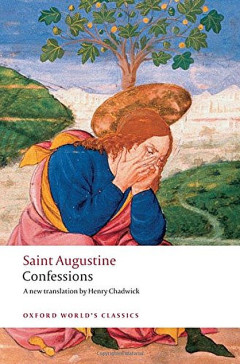
Saint Agustine: Confessions
In his own day the dominant personality of the Western Church, Augustine of Hippo today stands as perhaps the greatest thinker of Christian antiquity, and his "Confessions" is one of the great works of Western literature. In this intensely personal narrative, Augustine relates his rare ascent from a humble Algerian farm to the edge of the corridors of power at the imperial court in Milan, his s…
- Edition
- 3
- ISBN/ISSN
- 9780199537822
- Collation
- Softcover; 352 hlm.; 13.03 x 19.89 cm
- Series Title
- Oxford World's Classics
- Call Number
- 270.2092
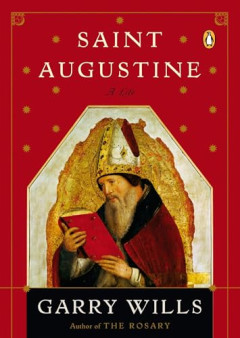
Saint Augustine: A Life
Garry Wills examines this famed fourth-century bishop and seminal thinker whose grounding in classical philosophy informed his influential interpretation of the Christian doctrines of mind and body, wisdom and God. Saint Augustine explores both the great ruminator on the human condition and the everyday man who set pen to parchment. It challenges many misconceptions - among them the myth of Aug…
- Edition
- -
- ISBN/ISSN
- 9780143035985
- Collation
- Softcover; 173 hlm.; 12.7 x 18 cm
- Series Title
- -
- Call Number
- 270.2092
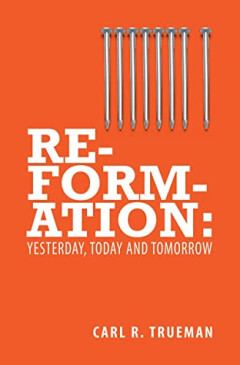
Reformation: Yesterday, Today, and Tomorrow
- Edition
- 1
- ISBN/ISSN
- 9781845507015
- Collation
- Softcover; 128 hlm.; 12.7 x 19.3 cm
- Series Title
- -
- Call Number
- 270
- Edition
- 1
- ISBN/ISSN
- 9781845507015
- Collation
- Softcover; 128 hlm.; 12.7 x 19.3 cm
- Series Title
- -
- Call Number
- 270

Augustus to Constantine: The Rise and Triumph of Christianity in the Roman World
This masterful study of the early centuries of Christianity vividly brings to life the religious, political, and cultural developments through which the faith that began as a sect within Judaism became finally the religion of the Roman empire. First published in 1970, Grant's classic is enhanced with a new foreward by Margaret M. Mitchell, which assesses its importance and puts the reader in to…
- Edition
- -
- ISBN/ISSN
- 9780664227722
- Collation
- Softcover; 392 hlm.; 15 x 23 cm
- Series Title
- -
- Call Number
- 270.1
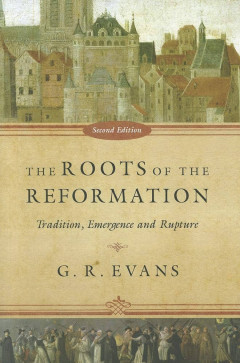
The Roots of the Reformation: Tradition, Emergence, and Rupture
Renowned historian G. R. Evans revisits the question of what happened at the Reformation. Contravening traditional paradigms of interpretation, Evans charts the controversies and challenges that roiled the era of the Reformation and argues that these are really part of a much longer history of discussion and disputation. Evans takes up several issues, such as Scripture, ecclesiology, authority,…
- Edition
- 2
- ISBN/ISSN
- 9780830839964
- Collation
- Softcover; 480 hlm.; 15.24 x 22.61 cm
- Series Title
- -
- Call Number
- 270.6

Character Counts: Leadership Qualities in Washington, Wilberforce, Lincoln an…
"Character Counts" contains briefs biographical and reflective chapters about four remarkable world figures who not only withstood the extreme adversities of their offices and circumstances but flourished and grew under pressure to become people who made a difference in their times. Concerned citizens and all who eager to raise the level of character in this generation and the next will draw i…
- Edition
- -
- ISBN/ISSN
- 9780801058240 / 0801058244
- Collation
- Softcover; 160 hlm.; 14.43 x 21.54 cm
- Series Title
- -
- Call Number
- 270.80922
 Computer Science, Information & General Works
Computer Science, Information & General Works  Philosophy & Psychology
Philosophy & Psychology  Religion
Religion  Social Sciences
Social Sciences  Language
Language  Pure Science
Pure Science  Applied Sciences
Applied Sciences  Art & Recreation
Art & Recreation  Literature
Literature  History & Geography
History & Geography